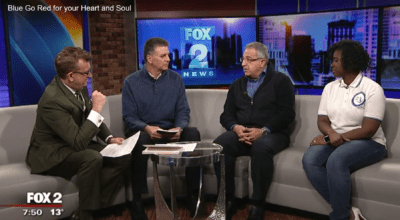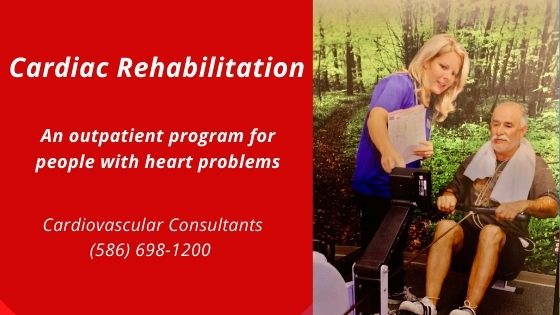What is palpitation?
Palpitation is awareness of one’s heart beating. Normally a person would not feel their heart beating. It is only when a heart is either beating very fast or is beating very heavily that a person becomes aware of their heartbeat. A person with palpitation can describe it as a rapid fluttering, pounding sensation, or flip-flopping in the chest.
Why is it important to know about palpitation?
Palpitation is a widespread condition a cardiologist or a primary health care provider encounters in their health setup. A study found that about 16% of the patients presenting to a primary health care provider complained of palpitation. Most of the time palpitation is a benign condition, meaning it is not very serious. Only a few times it can indicate a severe and life-threatening condition. [1]
When should I seek medical help?
Although heart palpitations are not dangerous mostly, some signs if present indicate the condition is serious. You must seek medical help if you have palpitations and:
- Dizziness, confusion, or lightheadedness.
- Chest pain: either sharp and anywhere within the chest or heavy and behind the sternum.
- Difficulty breathing.
- Syncopal attacks.
What can cause palpitation?
You can develop palpitation at any time. Palpitation can occur normally when you are anxious, have a fever, are dehydrated, are pregnant, or exercising. The list of conditions that can cause palpitations is a long one. Broadly, many doctors prefer to divide the cause due to:
- Heart conditions like myocardial infarction (Heart Attack), or arrhythmia (heart rhythm disorders like atrial/ventricular flutters/fibrillation).
- Psychiatric problems like Depression, Anxiety, panic disorders, etc.
- Medical issues like anemia, electrolyte imbalances, hypoglycemia, hyperthyroidism, excess alcohol, smoking or coffee intake, and drugs like cocaine, amphetamine, etc.
Although heart disease is the most common organic cause of palpitation, accounting for almost 43% of the cases, psychiatric issues like anxiety are also common and account for approximately 31%. Medical issues as listed above can cause palpitations in almost 10% of the cases. Unfortunately, in some cases, the exact cause is not known. [1]
How does the doctor diagnose Palpitation?
Palpitation is a subjective symptom of the patient. Although most patients do not have palpitation when they are being examined by the doctor, any underlying severe issue must be ruled out. Like any other symptom, the diagnostic evaluation of the patient proceeds with:
- History taking,
- Performing a relevant physical examination, and
- Investigations.
While a doctor is taking a detailed history, he/she can ask about when did the symptom first start, how does it progress, what specific situation increases the symptoms or are there any relieving factors (like rest, Valsalva), and whether it occurs alongside other symptoms like dizziness, chest pain, or fainting episodes. The doctor can ask about exercise habits, caffeine intake, alcohol abuse, and if there is any illicit drug abuse.
Next, the doctor will examine for vital signs (pulse, blood pressure while lying and sitting up), and will auscultate the heart with a stethoscope for any murmurs (abnormal sounds in the heart).
Investigations like 12 lead ECG is a must during the evaluation of palpitation in a patient, ECG may show signs of serious underlying heart disease like Wolff-Parkinson-White syndrome, hypertrophic obstructive cardiomyopathy, or Myocardial Infarction (heart attack). Doctors may ask for other tests in blood like blood counts, electrolyte levels, kidney, and/or thyroid function tests. All these tests are important to rule out serious and life-threatening pathology which can alter heart rate and/or rhythm (arrhythmia).
Only rarely, other tests like Echocardiography, Holter monitor, and loop recorder are needed if the above tests cannot detect the probable cause of palpitation and if patients are likely to have some serious heart disorders.
Will my heart palpitation disappear on its own?
In many cases, the cause of heart palpitations is a benign one. Heart palpitations can disappear on their own when you:
- Avoid alcohol, smoking or chewing tobacco, or excess caffeine intake.
- Avoid spicy foods.
- Avoid drugs like amphetamine.
- Avoid heavy exertions like strenuous physical activities.
- Perform Yoga and relaxation techniques like deep breathing.
- Maintain proper hydration and electrolyte levels.
Are there any other treatment options for palpitation?
Treatment for palpitation depends on the causative factor. Palpitation alone does not require treatment. Doctors will send the patient home if they do not have symptoms during the hospital visit, the physical examination is normal, and have a normal lab report and ECG report. Patients need to follow up with a cardiologist or primary care physician, however.
Palpitations due to medical conditions like anemia, hyperthyroidism, and hypoglycemia need treatment, and correction of these medical conditions will automatically resolve palpitations.
Patients who present with other symptoms like syncope, arrhythmia, decreased blood pressure, and chest pain usually needs hospital admission. These symptoms are serious and so doctors advise full workup for identification of probable causes.
One of the serious heart conditions is Premature ventricular contractions(PVCs) and if it is frequently occurring then it needs treatment. Medicines belonging to Beta-Blocker or Calcium channel blocker group are mostly used by doctors. If medicines fail then a more invasive type of treatment called catheter ablation is used to cure the foci causing frequent PVC.
References
- Goyal A, Robinson KJ, Katta S, Sanchack KE. Palpitations. InStatPearls [Internet] 2021 Aug 13. StatPearls Publishing.
- Heart Palpitations: Causes, Treatment & Prevention [Internet]. Cleveland Clinic. 2022 [cited 25 June 2022]. Available from: https://my.clevelandclinic.org/health/diseases/17084-heart-palpitations
- WEXLER R, PLEISTER A, RAMAN S. Palpitations: Evaluation in the Primary Care Setting [Internet]. Aafp.org. 2022 [cited 25 June 2022]. Available from: https://www.aafp.org/pubs/afp/issues/2017/1215/p784.html




